Blood transfusions are a lifeline for visceral leishmaniasis patients in Kenya’s Turkana County
Early detection and treatment is critical in places where blood transfusions are scarce.
By Mary Mwendwa
Photography by Sandra Ruong’o
In the sun-scorched expanse of Turkana, life is shaped by nature and neglect. Located in northwest Kenya, Turkana is the country’s most impoverished county. The region suffers ongoing droughts, receiving just a few inches of rain a year. Roads and hospitals are scarce, and people living in isolated communities across the region must struggle to make a living.
For Phillip Ayanae, a middle-aged father of four and a herder from Kalokol village, that struggle led him to a hospital bed at Lodwar County Referral Hospital. He was frail and barely able to speak. His body was ravaged by visceral leishmaniasis, commonly known as kala-azar, a deadly neglected tropical disease that preys on the most vulnerable.
Like many men in his village, Ayanae had spent his life herding livestock, unaware of the disease slowly creeping through his veins. The disease is spread by sandflies, and thrives where healthcare is scarce and malnutrition is rampant.
Dr. Duncan Mutahi, the physician on duty, shook his head gravely as he reviewed Ayanae’s test results.
“His condition is critical. He was admitted last week with severe complications. He has hepatitis B, dangerously low blood sugar, and possible organ failure. His hands are swollen, which is a bad sign.”
Lying on a thin green plastic mattress in the corner of the hospital ward, Ayanae could only whisper.
“My legs…they hurt,” he murmured, his swollen wrist wrapped in a bandage. His spleen was visibly enlarged, a hallmark of advanced visceral leishmaniasis.
Ayanae’s wife, Christine Amera, sat on the opposite bed anxiously, speaking in Turkana, the local language. Her words were heavy with fear and helplessness.”My husband is so weak…I brought him here last week, he was in terrible shape. Doctors recommended a blood transfusion, but there was no blood available.” Amera’s voice trembled as tears fell down her face. “Now we’re just waiting…praying that today, he gets a transfusion. This could save his life.”
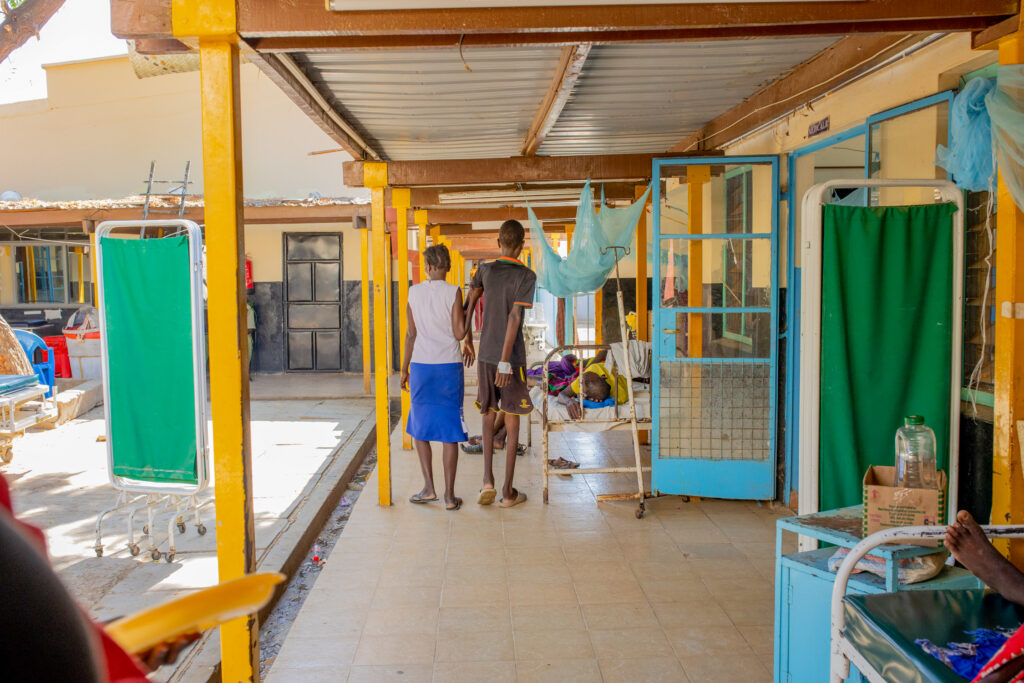
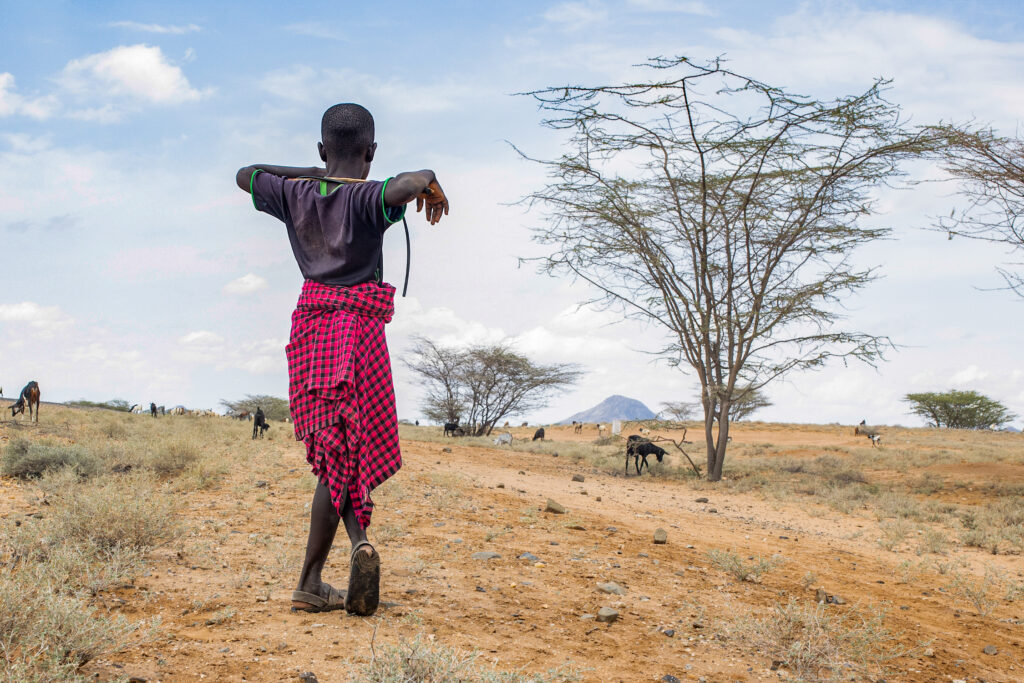
A disease that destroys the body’s ability to replenish blood
Visceral leishmaniasis primarily attacks the spleen and bone marrow, which are responsible for blood production. It drastically reduces the number of red cells, platelets, and white cells in the blood, which can result in anemia, excessive bleeding, and susceptibility to other infections.
This makes blood transfusions urgently necessary to save lives.
Ayanae’s case is not out of the ordinary for Lodwar County Referral Hospital. According to data from the Ministry of Health, Lodwar County Referral Hospital recorded 137 cases of visceral leishmaniasis between January and March 2025.
The increasing frequency of outbreaks is straining the health system, and clinics must tap into the already scarce blood supply to treat critical patients. “These outbreaks in the region are cyclical,” explains Duncan Ochol, the Senior Director of Programs for visceral leishmaniasis at the END Fund. “On average, they occurred about every seven years. But now they are more frequent, every three to four years, partly due to environmental changes such as drought and migration of communities to areas where the sandfly vector is common.” Over 1,200 people were estimated to be infected in the latest outbreak. If left untreated, the disease fatality rate is 95%, but with treatment that can be reduced to as little as three percent.
The deputy in charge at the medical ward, Juliet Nyongesa, confirms that they lost multiple patients during this latest outbreak in Turkana County. “Many of the patients come when the disease is advanced. Some come bleeding and mostly with very low hemoglobin levels.”
Nyongesa notes how many of the patients they admit come with incisions around the stomach area. “Culturally, people in this community believe that when someone is sick, they have to eject the bad blood, then cut a small incision around the stomach area to remove the bad blood. Unfortunately, we observe this trend among most visceral leishmaniasis patients.” Healers may also cut the larger veins in the arms of a sick person to remove larger quantities of blood. Communities have limited knowledge of how the disease works and how to safely treat it–and these traditional practices, while intended to heal, can make a patient even sicker.
Blood is a scarce and precious resource
In Turkana, deep-rooted myths and superstitions about blood donation prevent many families from stepping forward. “People believe donating blood weakens them or takes away their strength,” Dr. Mutahi explained.
Ayanae’s situation became dire. His hemoglobin level had dropped to a critical level, but there was no blood available for him. The hospital was experiencing a severe blood shortage. Day after day, he waited.It is estimated that hundreds of millions of people, especially those in Africa, live in what are called ‘blood deserts’. These areas have very limited supplies of donated blood for transfusion, and the nearest options may be hours away in urban centers.
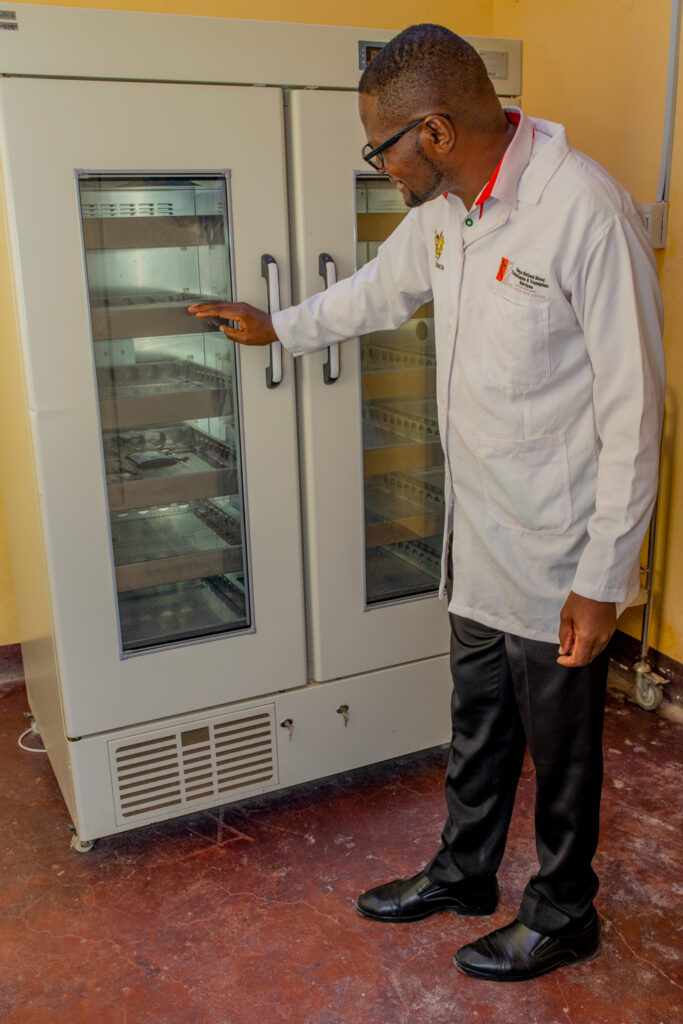
Edward Mutebi, who is in charge of the Lodwar Satellite Blood Center that serves Turkana County, says that they regularly get requests for visceral leishmaniasis patients, but blood shortage is something he grapples with on a daily basis. “Our average blood need is usually 450 units monthly.” They are typically short 100-200 units, he explains.
This deficit causes delays in critical treatment and prolongs hospitalization. Family members have the option to donate blood to their sick relative when stocks are completely depleted. But this becomes a challenge when factors such as blood type compatibility, other blood infections, and myths around blood donations come in.
For visceral leishmaniasis, early treatment reduces and even eliminates the need for blood transfusions as the life saving intervention and drastically improves a patient’s odds of surviving. Through the END Fund, the Children’s Investment Fund Foundation, ELMA Philanthropies, The Leona M. and Harry B. Helmsley Charitable Trust, and UBS Optimus Foundation generously provide support to reach cases of visceral leishmaniasis with early diagnosis and treatment.
Mutebi and his team recently conducted a blood donation drive at the Lodwar branch of Kenya Medical Training College. Schools are a frequent site of blood donation drives, because younger people tend to donate blood more often than older people, can be mobilized through local clubs, and have fewer conditions that prevent them from donating.
Daniel Lopus, a nursing student at the medical college, is one of the donors who have come to participate in the drive. This is his second time donating blood. “I have come to donate blood to save lives, I know what it means to lack blood. I have been at the Lodwar hospital and seen firsthand experience of how patients need blood, at the maternity department and more so visceral leishmaniasis patients who come with very low blood levels.”
But what is collected is never enough. “We were targeting 50 units of blood. We managed to get only 21. Though not enough, this will help,” explains Mutebi.
The blood must be sent over 370 kilometers away for further screening at the Regional Blood Transfusion Center in Eldoret for transmissible infections. The blood is transported in cooler containers by road using local public transport, shuttles, or by ambulance when a patient is being referred to Eldoret.
“Today I have been receiving calls from the pediatrics, medical, surgical, and maternity departments for patients in need of blood,” said Mutebi. “We have only sorted urgent cases, the rest have to wait until tomorrow after the screening of blood from Eldoret is brought back.”
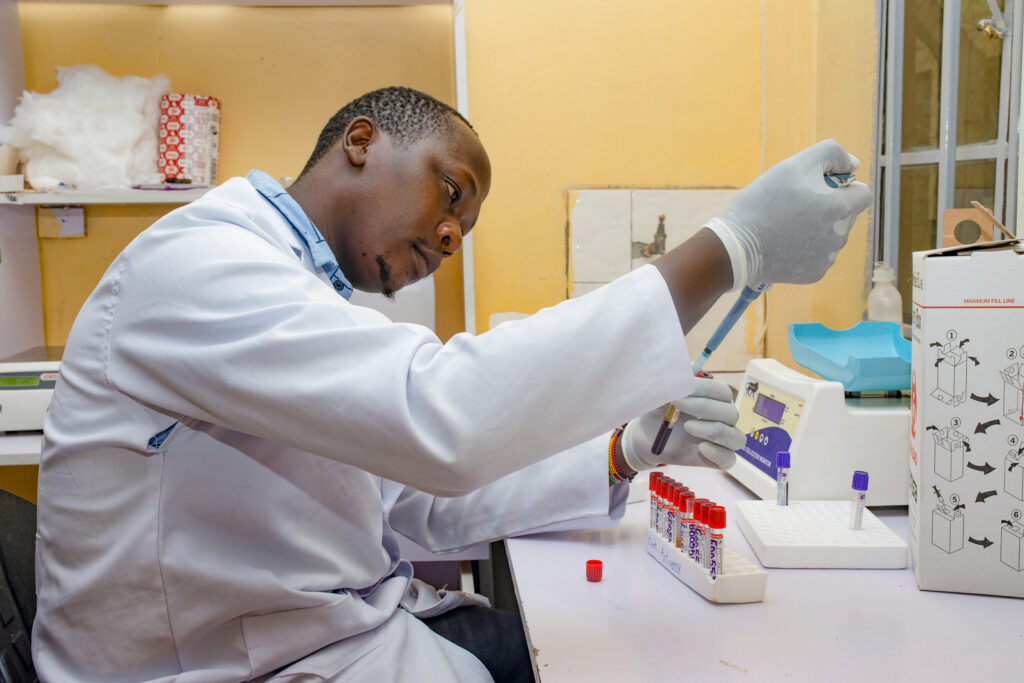
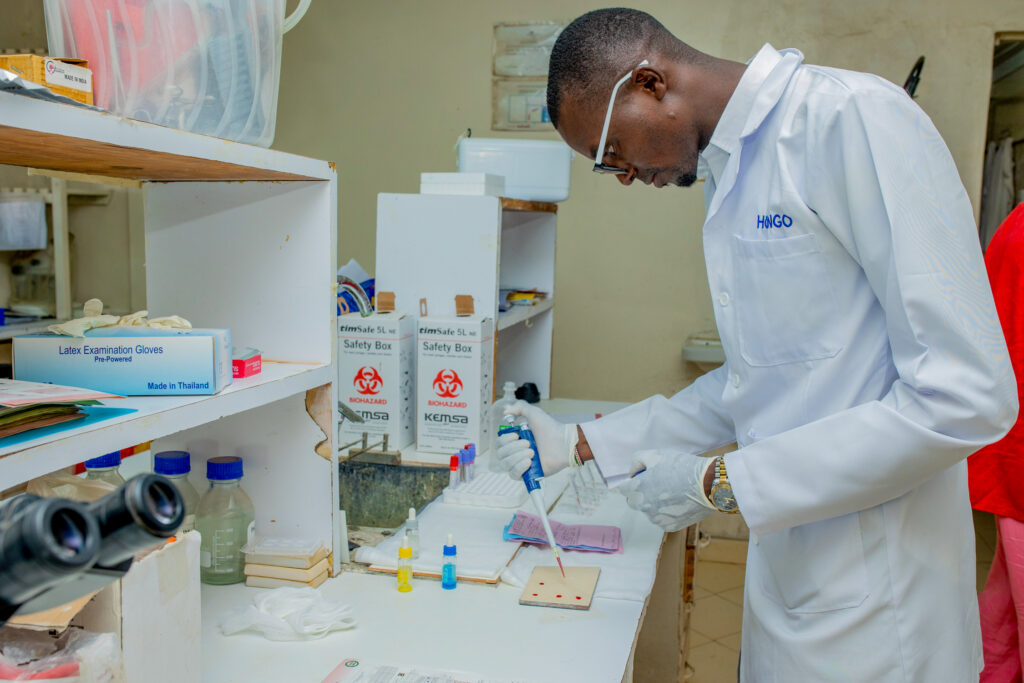
There was a glimmer of hope for Ayanae. A maternity patient who had been reserved a pint of blood did not require a transfusion. In a swift decision, the medical team reassigned it to Ayanae. The hospital buzzed with urgency as they rushed to prepare the unit of O-positive blood. Every second mattered.
As the team gathered around his bed, machines beeped and vitals were checked. But then, a sharp, continuous beep from the glucometer shattered the moment. Ayanae’s blood sugar was dangerously low. Worse, he had begun to bleed from his mouth.
“We have to stop! We can’t transfuse him in this condition,” Dr. Mutahi ordered.
His wife was told to bring him food right away, anything to help strengthen him. The medical team couldn’t wait; they had to move on to other patients, but they kept a close watch on Ayanae, hoping he would stabilize.
They monitored him until evening, when he was finally strong enough for a blood transfusion. Drop by drop, the blood flowed into his fragile body. For a moment, there was hope. But just a day later, his condition worsened again. His blood sugar plummeted.
And then, despite everything, Ayanae was gone.
The weight of his absence crashed down like a wave. He was more than a patient; he was a father, a husband, a pillar. His young family stood shaken, four children and their mother, their futures uncertain. Who would guide his sons? Who would comfort his daughters? His wife, once his partner in life’s struggles, now faced the crushing burden of providing for her family alone.
An urgent moment for action
Turkana’s blood shortage crisis remains a dire problem for many. Innovative solutions for improving the supply in blood deserts like Turkana are being explored by organizations such as the Blood Desert Coalition. These include the use of drones for delivery, autotransfusion (using the patient’s own blood), and ‘walking blood banks’ composed of local volunteers who are willing to give blood on the spot.
For visceral leishmaniasis patients, early detection and care is critical to reducing the need for blood transfusions. Amref Health Africa, with financial support from the END Fund, is bolstering the efforts of the Kenyan Ministry of Health to address the ongoing crisis of visceral leishmaniasis in the region. Amref Health Africa trains health workers on proper blood use and identifying cases of visceral leishmaniasis for early referral to treatment.
“Our work is to identify cases of visceral leishmaniasis, treat, and do active case searches in communities,” says Dr. Paul Kibati, Technical Officer for visceral leishmaniasis at Amref Health Africa. “We also strengthen data reporting by helping to integrate it into Kenya’s health information system, doing disease surveillance, and developing a national response plan with other stakeholders.” These efforts are crucial to reducing the burden of visceral leishmaniasis in Turkana and other endemic areas, the need of transfusions as the only means to save lives and lessening the pressure on local health systems tasked with caring for patients.
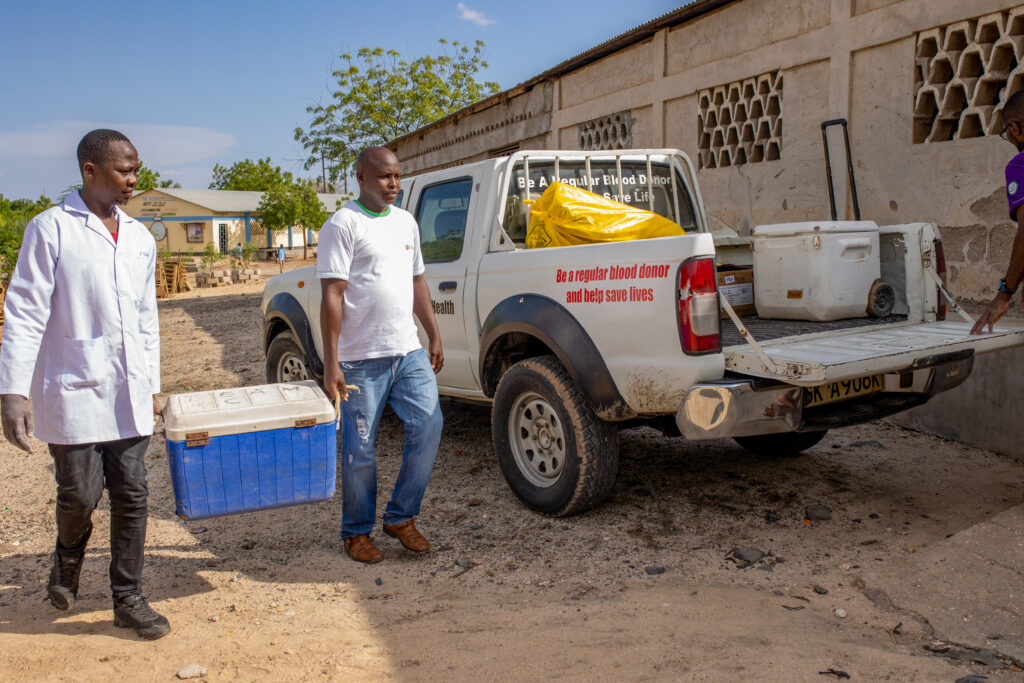
Your support can ensure that we are able to continue providing life-saving interventions to those affected and strive towards a world in which no one’s life is threatened by devastating yet preventable diseases.

